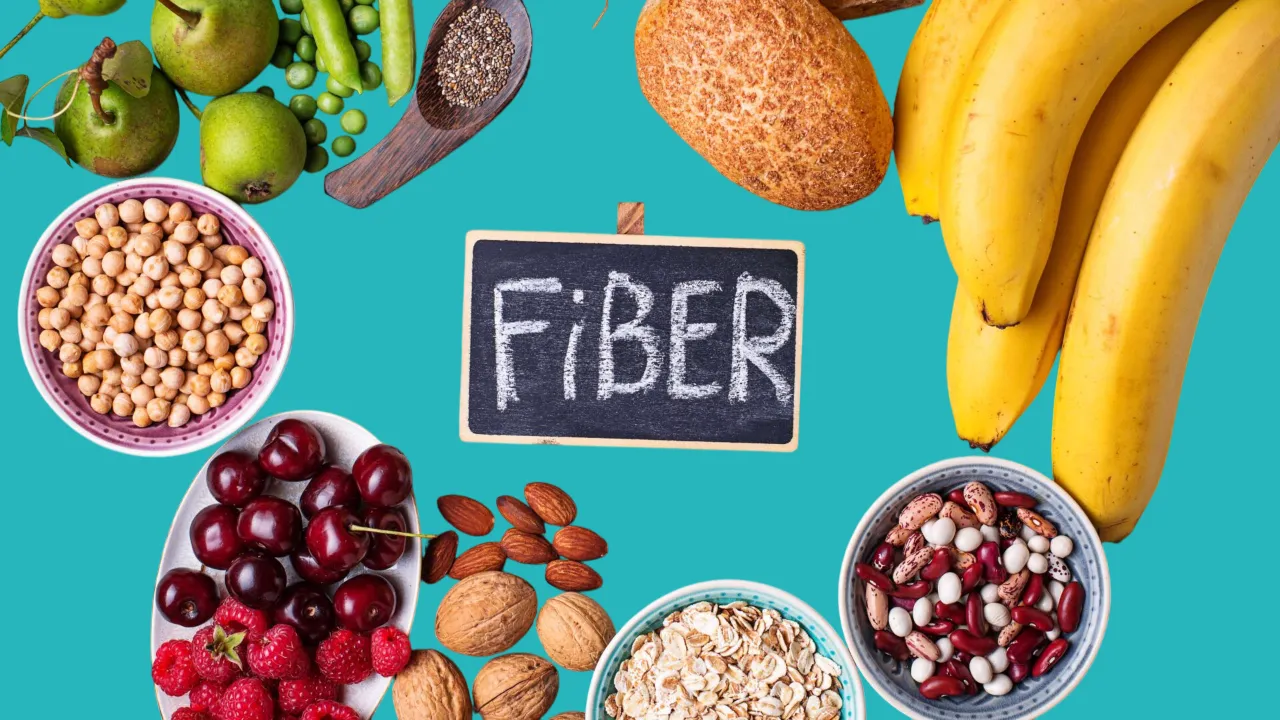Dietary fiber is one of the most important components the body needs to maintain a healthy digestive system and regulate blood sugar levels. It plays a key role in supporting the digestive process and improving nutrient absorption.
What is dietary fiber?
Fiber is a type of indigestible carbohydrate found in many plant foods, such as:
- Fruits and vegetables.
- Whole grains.
- Legumes and nuts.
Types of dietary fiber

Fiber is divided into two main types, each with its own benefits, including:
- Soluble fiber: dissolves in water and forms a gel-like substance that helps lower cholesterol and regulate blood sugar.
- Insoluble fiber: facilitates bowel movements and prevents constipation.
The role of fiber in improving digestion
Fiber contributes to promoting digestive health and stimulating bowel movements. Its effects include:
- Preventing constipation.
- Reducing colon problems.
- Promoting the growth of beneficial bacteria in the intestines.
The effect of fiber on blood sugar regulation
Eating fiber slows the absorption of glucose into the blood, which maintains stable blood sugar levels. The results include:
- Reducing post-meal blood sugar spikes.
- Improve insulin response.
- Prevent type 2 diabetes.
Fiber-rich foods

There are many foods that contain high amounts of beneficial fiber, such as:
- Oats and barley.
- Lentils and beans.
- Apples and pears.
- Leafy vegetables such as spinach and broccoli.
Additional benefits of fiber for the body
Fiber offers benefits beyond the digestive system, including:
- Lowering harmful cholesterol.
- Reducing appetite and helping with weight control.
- Preventing heart disease.
Recommended daily fiber intake
Daily fiber needs vary by age and gender, but the general average is:
- 25 to 30 grams per day for adults.
- This can be obtained from a varied, plant-rich diet.
Tips to increase your fiber intake
To maximize the benefits of fiber, follow these tips:
- Eat fruits and vegetables with their skins if possible.
- Choose whole grains over refined grains.
- Gradually increase your fiber intake to avoid bloating.
- Drink water regularly to facilitate the passage of fiber through the intestines.
Warning against excessive fiber intake
Despite its benefits, excessive fiber intake may cause some undesirable symptoms, such as:
- Bloating and gas.
- Diarrhea or stomach upset.
- Reduced absorption of some minerals, such as iron and zinc.
Article Summary
Fiber is an essential nutrient for improving digestion and regulating blood sugar. It supports bowel movements and reduces glucose
fluctuations. To reap its full benefits, be sure to consume adequate amounts of it daily from a variety of natural sources and drink plenty of water.